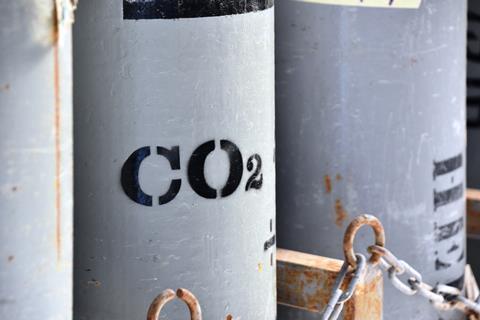
The future of the UK’s bioethanol industry – and by extension its future capacity to produce CO2 gas critically important to the food sector – is just days from collapse, major producer Vivergo Fuels has warned.
The Associated British Foods-owned chemical giant this week told ministers it would be “forced to start the irreversible process of closing” its bioethanol plant in Hull by Monday (18 August), unless the government could come up with a financial bailout for the sector – which is facing an uncertain future due the impact of the US/UK trade deal.
That deal, agreed in May between prime minister Keir Starmer and president Donald Trump, allows for the tariff-free access to the UK for up to 1.4 billion litres of US ethanol, leading to warnings of impending closure by the UK’s two largest producers of the fuel: Vivergo and Ensus, which has a plant on Teeside.
Ensus, which produces about 30% of the UK’s CO2 gas supplies as a byproduct of bioethanol production, warned in the wake of the deal’s announcement that its business model had become unviable, before saying it faced “imminent closure” in June, unless a government bailout could be agreed.
Vivergo has also made similar warnings in recent months, and this week handed the government an ultimatum it would close its Hull plant without a decision on support from government – having taken in its last lorryload of British-grown wheat, used as a feedstock in the manufacturing process, at the start of the month.
The government’s decision to axe a 19% tariff on US bioethanol imports would allow “cheap, subsidised American fuel to flood the UK market”, it said, adding the Hull plant had “shouldered almost £10m in losses” since May.
Read more: CO2 gas crisis looms closer as Ensus warns of ‘imminent closure’
“The industry had already been in talks with government over the UK’s unfair regulatory system that favours overseas producers, but the trade deal was a hammer blow for Britain’s domestic industry,” Vivergo added.
“The tariff-free quota introduced by the deal represents the entire size of the UK market,” it pointed out. “The only option is to grow Britain’s domestic market by increasing demand for bioethanol above the quota laid out in the trade deal.”
The bioethanol industry has also called for essential changes to regulations to “level the playing field with overseas producers”, plus short-term financial support on the path to profitability and a commitment from government to back the industry.
Vivergo’s Hull plant helped underpin £24.8bn in potential growth over the next 25 years for the city and surrounding area, with at least £7.3bn directly dependent on the business, it claimed.
The producer has also reportedly pledged to commit to invest in the production of food-grade CO2 as part of any bailout deal – a process, unlike Ensus, which Vivergo does not currently undertake.
The level of losses faced by the Hull operation was “not sustainable for any business”, warned Paul Kenward, CEO of Vivergo’s owner ABF Sugar.
“That is why we have been clear throughout these negotiations with the government that we cannot go beyond Monday 18 August unless these losses are covered from this date, alongside a commitment from government to support a roadmap to profitability for the British bioethanol industry.”
The business had already shown “real flexibility”, including pushing back the date of its initial “backstop” at the request of ministers, Kenward said, suggesting government intertia on the issue, and a potential industry collapse, was because “key people are on annual leave at the wrong time”.
“We have approached these negotiations in good faith throughout all while accumulating sizeable losses,” he added. “This industry can and should be profitable and thriving as it is abroad. But we need fair regulation and a stable policy environment to achieve this.”
NFU warned government of CO2 gas supply vulnerability in February: Tom Bradshaw
A collapse of the bioethanol sector and a related tightening of CO2 gas supply could lead to an increased reliance on imports and upward pressure on prices, warned the British Meat Processors Association last month.
The meat sector, which uses the gas in the slaughtering of animals, as well as in packaging, had learnt from previous CO2 gas supply crises to diversify its sourcing of the gas, the trade body said.
It had also moved away from modified atmosphere packaging to vacuum packing where it could, it added.
“That said, the CO2 supply chain is notorious for not flagging problems early. It’s also very concentrated, meaning that very few merchants control the vast majority of the gas supply and are able to command very healthy mark-ups,” the BMPA warned.
Responding to Vivergo’s concerns, a government spokesperson told The Grocer: “We have engaged with the company and industry extensively.”
Following a review of the business plans of Ensus and Vivergo, the government had “recruited external consultants to provide a full appraisal and due diligence of the plans”.
It would “continue to take proactive steps to address the long-standing challenges it faces and remain committed to a way forward that protects supply chains, jobs and livelihoods”, the spokesperson added.







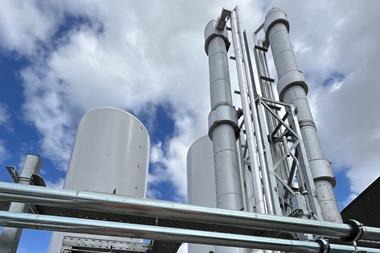
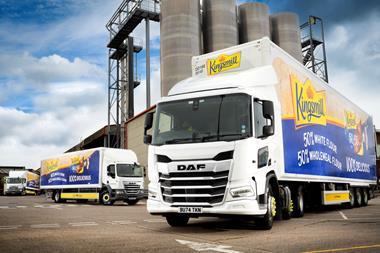
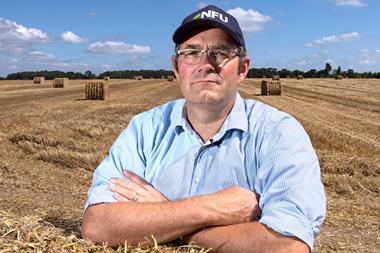
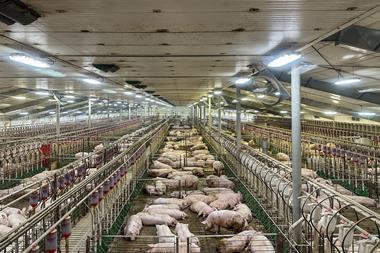

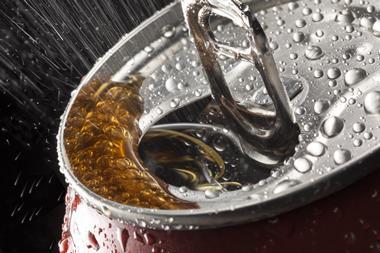






No comments yet